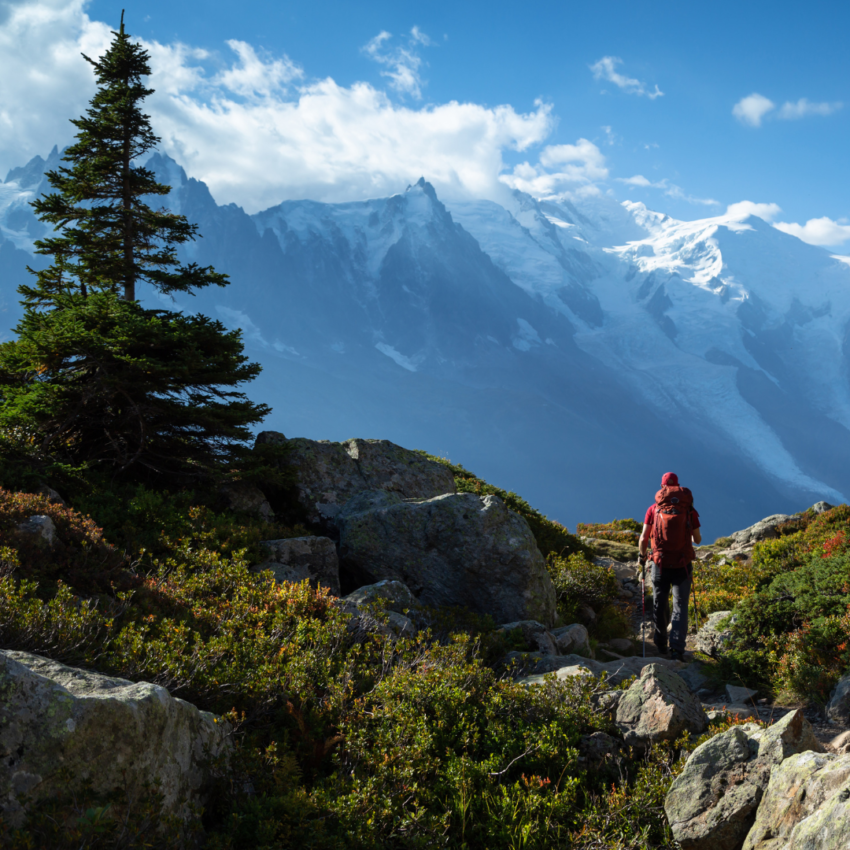Hiking in the mountains can be an exciting and challenging experience, offering breathtaking views and an opportunity to connect with nature. Whether you’re an experienced hiker or a beginner, there are certain tips and tricks that can make your mountain hiking experience safer and more enjoyable. Here is a beginner’s guide to help you get started on your first mountain hike.
Choose a Suitable Trail
When selecting a trail, consider your fitness level and experience. Start with a beginner-friendly trail that’s well-marked and has a gentle incline. Research the trail’s length, elevation gain, and level of difficulty before you set out. It’s also a good idea to check the weather forecast and trail conditions before you go.
Choose the Right Gear
Having the right gear is crucial for a successful and safe mountain hike. Start with a pair of high-quality hiking boots that fit comfortably and provide proper support for your feet and ankles. Invest in a daypack that fits your body, has adjustable straps, and enough storage for essentials such as water, food, and first-aid supplies. Make sure you also have appropriate clothing for the weather and trail conditions, including a waterproof jacket, hat, and gloves. Don’t forget to bring sunscreen, sunglasses, and insect repellent to protect yourself from the elements.
Plan Ahead
Before you set out on your hike, it’s essential to do your research and plan ahead. Familiarize yourself with the trail you’ll be taking, including its length, difficulty, and elevation. Check for any current warnings or restrictions, such as trail closures or hazardous weather conditions. Plan your route, taking into account the time of day, and make sure you have enough time to complete the hike before it gets dark. Bring a map, compass, or GPS device, and let someone know your plans in case of an emergency.
Stay Hydrated
Staying hydrated is crucial when hiking in the mountains, especially if you’re hiking at high elevations. Bring plenty of water and a hydration system, and drink regularly throughout the day. Avoid drinking caffeine or alcohol, as they can dehydrate you. If you’re hiking in a remote area, be aware of water sources, such as streams or lakes, and take proper precautions to avoid water-borne illnesses.
Pack a First-Aid Kit
A well-stocked first-aid kit is an essential item to bring on any hike. Pack items such as band-aids, antiseptic wipes, pain relievers, and a compact first-aid manual. Make sure you know how to use each item, and be prepared to treat basic injuries, such as blisters or sprains.
Be Prepared for the Weather
The weather can change quickly in the mountains, so it’s important to be prepared for any eventuality. Check the forecast before your hike, and bring extra layers, such as a fleece or puffy jacket, to stay warm. Wear waterproof gear if there’s a chance of rain or snow, and bring a hat and gloves if it’s cold.
Know Your Limits
Hiking in the mountains can be physically demanding, so it’s important to know your limits. Choose a trail that’s appropriate for your fitness level, and take breaks as needed. Hiking at a slower pace will help you conserve energy and avoid getting tired too quickly. If you’re feeling unwell, such as dizzy, lightheaded, or experiencing altitude sickness, stop and rest, or consider turning back.
Respect Wildlife and the Environment
When hiking in the mountains, it’s essential to respect wildlife and the environment. Stay on established trails to avoid disturbing sensitive ecosystems, and avoid disturbing or feeding wildlife. Pack out all of your trash, and follow Leave No Trace principles to minimize your impact on the environment.
So, hiking in the mountains is a fantastic way to experience the great outdoors and challenge yourself. It’s important to remember that proper planning and preparation, including choosing a suitable trail, packing the right gear, and being mindful of weather conditions, will make your hiking experience much more enjoyable.
If you’re new to hiking, start with a beginner-friendly trail and gradually work your way up to more challenging routes. The most important thing is to have fun, enjoy the scenery, and take in the experience of being in nature. Whether you’re a seasoned hiker or a beginner, the mountains offer endless opportunities for exploration and adventure. So, lace up your hiking boots and get ready to tackle the trails!


